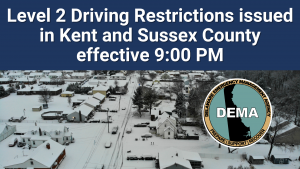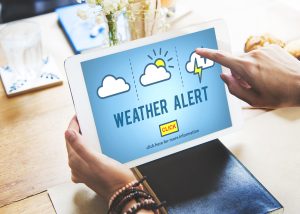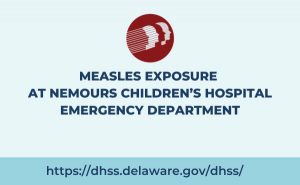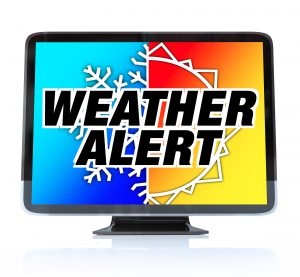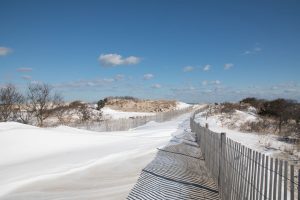DOVER (June 21, 2013) – On this first day of summer, the Delaware Department of Natural Resources and Environmental Control (DNREC) and Division of Public Health (DPH) of the Department of Health and Social Services (DHSS) advise Delawareans to be prepared for extreme summer heat, while offering precautions for withstanding rising temperatures, and also what to do when you are involved in a heat-related incident.
Extreme heat kills an average of 1,500 people in the United States each year – exceeding deaths from hurricanes, tornadoes, lightning and blizzards combined. Since 1993, more than 400 Delawareans have died due to excessive heat.
Heat illness occurs whenever the body cannot compensate for excessive heat. When temperatures and humidity are high, sweat ceases to evaporate and the body’s natural cooling system slows down, in some cases shutting down completely. Very hot weather can cause heat exhaustion and heat stroke, which can be fatal.
Most at risk of suffering heat-related illnesses are children, the elderly, the poor or homeless, people who work or exercise outdoors, and those with chronic medical conditions. Of all who are susceptible, the elderly and those with chronic medical conditions are less likely to sense and respond to rises in temperature, and medications can intensify heat effects. Extremely hot weather can worsen existing chronic medical conditions such as asthma, chronic obstructive pulmonary disease, and other respiratory and cardiovascular problems.
DNREC and DPH advise Delawareans to:
STAY COOL
- Find air-conditioned shelters like libraries, malls, theatres, or houses of worship. Stay on the lowest floor possible to avoid the heat. Do not rely on a fan alone as the primary cooling device.
- Avoid direct sunlight. If you must do strenuous activity outdoors, do it during the coolest part of the day, which is usually in the morning between 4 a.m. and 7 a.m.
- Wear lightweight, light-colored clothing. Wear hats or use an umbrella. Loosely cover as much skin as possible and use sunscreen. Sunburn slows the skin’s ability to cool itself, and has been linked to skin cancer.
- Take cool (not cold) showers or baths. An icy cold shower immediately after coming in from hot temperatures can be detrimental to health, particularly for the elderly and children.
STAY HYDRATED
- Drink plenty of water regularly. Carry water with you and drink continuously even if you do not feel thirsty. Avoid sugared, alcoholic and caffeinated beverages, which dehydrate the body.
- Check with a doctor before significantly increasing fluid intake if you have heart, kidney or liver disease, or if your doctor placed you on a fluid–restricted diet.
- Eat small meals and eat more often rather than eating a few large meals. Avoid using salt tablets unless directed to do so by a physician.
STAY INFORMED
- Check the local news for extreme heat alerts and safety tips.
- Learn the symptoms of heat illness. (See below.)
TAKE CARE OF OTHERS
- Help those dependent on your care to stay cool, hydrated, and informed.
- Check on friends and neighbors. Take them to air-conditioned locations if they are lacking for transportation.
- Do not leave people or animals in enclosed vehicles – check the back seat of your vehicle before exiting it to make sure you are not forgetting anyone there.
- Know the symptoms of heat exhaustion and heat stroke, and call 9-1-1 if medical attention is needed.
Heat exhaustion occurs when a person is overheated along with reduced or unbalanced intake of fluids. Symptoms include dehydration, fatigue, weakness, clammy skin, headache, nausea and/or vomiting, rapid breathing, irritability and fainting. Take these steps when it happens:
- Move the person indoors or into shade.
- Loosen or remove the person’s clothing.
- Encourage the heat exhaustion victim to eat and drink.
- Get the person to a cool shower or bath.
- Call your doctor for further advice.
Heatstroke occurs when the body can no longer cool itself, and can be a life-threatening event. Prompt medical treatment is required. Symptoms include: flushed, hot and dry skin with no sweating; high body temperature (above 103°F, orally taken); severe, throbbing headache; weakness, dizziness, or confusion; sluggishness or fatigue; decreased responsiveness; and loss of consciousness. If heatstroke occurs, take these steps:
- Call 9-1-1 immediately. This is a medical emergency.
- Get the heatstroke victim indoors or into shade.
- Get the person into a cool shower or bath, or wipe them down with continually soaked cool washcloths while awaiting emergency responders.
For further information, visit the Centers for Disease Control and Prevention website at http://www.cdc.gov/extremeheat/index.html.
Delaware Department of Health and Social Services is committed to improving the quality of the lives of Delaware’s citizens by promoting health and well-being, fostering self-sufficiency, and protecting vulnerable populations.
It is the mission of the Delaware Department of Natural Resources and Environmental Control to protect and manage the state’s vital natural resources, protect public health and safety, provide quality outdoor recreation, and to serve and educate the citizens of the First State about the wise use, conservation and enhancement of Delaware’s environment.
Delaware Department of Health and Social Services
Rita Landgraf, Secretary
Jill Fredel, Director of Communications
302-255-9047, Pager 302-357-7498
Email: jill.fredel@delaware.gov
Delaware Department of Natural Resources
and Environmental Control
Contact: Michael Globetti, DNREC Public Affairs
302-739-9902
Email: michael.globetti@delaware.gov
-30-






















